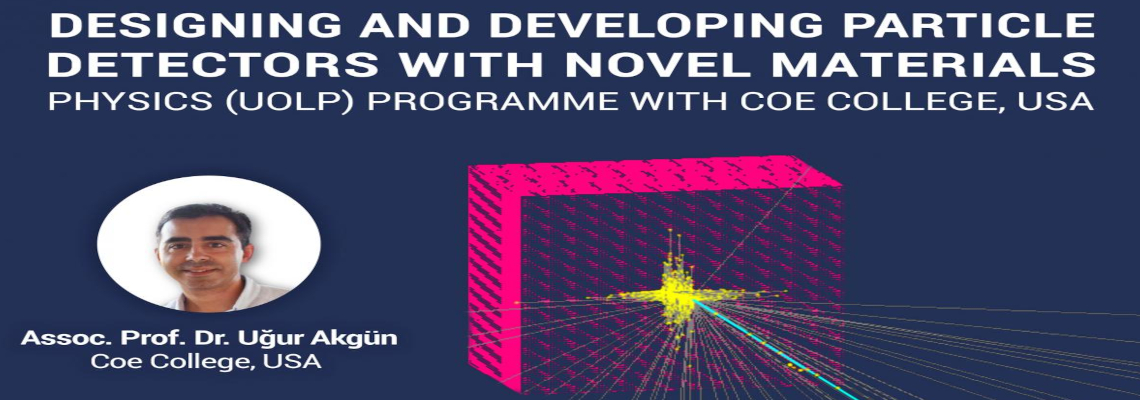Physics Department
In today's world, where interdisciplinary work, collaboration, and globalization are gaining importance, university graduates are expected to adapt to the work environment with their technical expertise and be flexible. Due to the increasing collaboration between universities, government laboratories, and industrial institutions, it is also essential for university graduates to be able to work in the evolving high-tech fields. The Physics Department, with its innovative and versatile programs, is training graduates who will make significant contributions to the evolving world of technology and science with analytical thinking skills and a strong academic background.
Established in 1996 within the Faculty of Arts and Sciences, our department has been providing education at the Yeditepe University Kayışdağı Campus since the 2000/2001 academic year, graduating our first undergraduate students in 2002 and postgraduate students in 2006. The Physics Master's Program started in the academic year 2002-2003, and the Doctorate and Integrated Doctorate Programs in 2003-2004. Our Health Physics Master's Program began its education in the academic year 2016-2017. Additionally, our department initiated an International Joint Bachelor's Program with Coe College in the USA, and the first enrollments took place in the academic year 2020-2021.
Our academic staff consists of 3 professors, 4 doctoral faculty members, and 5 research assistants, along with 2 technical specialists in our laboratories. In addition to our dedicated teaching staff, 2-3 faculty members from different higher education institutions contribute to education each semester. Our academic staff publishes research in various fields such as nonlinear dynamic systems-chaotic behavior, statistical physics, solid-state physics, mathematical physics, nonlinear optics, low-dimensional structures-quantum dots, experimental high-energy physics (CERN-Atlas Group), particle detectors, computational fluid dynamics, health physics-Monte Carlo Simulations, and Plasma and Industrial Applications-Vacuum Coating. In the last five years, we have produced 267 international articles with 2267 citations, 10 books/book chapters, 80 conference papers, and achieved 3 awards.
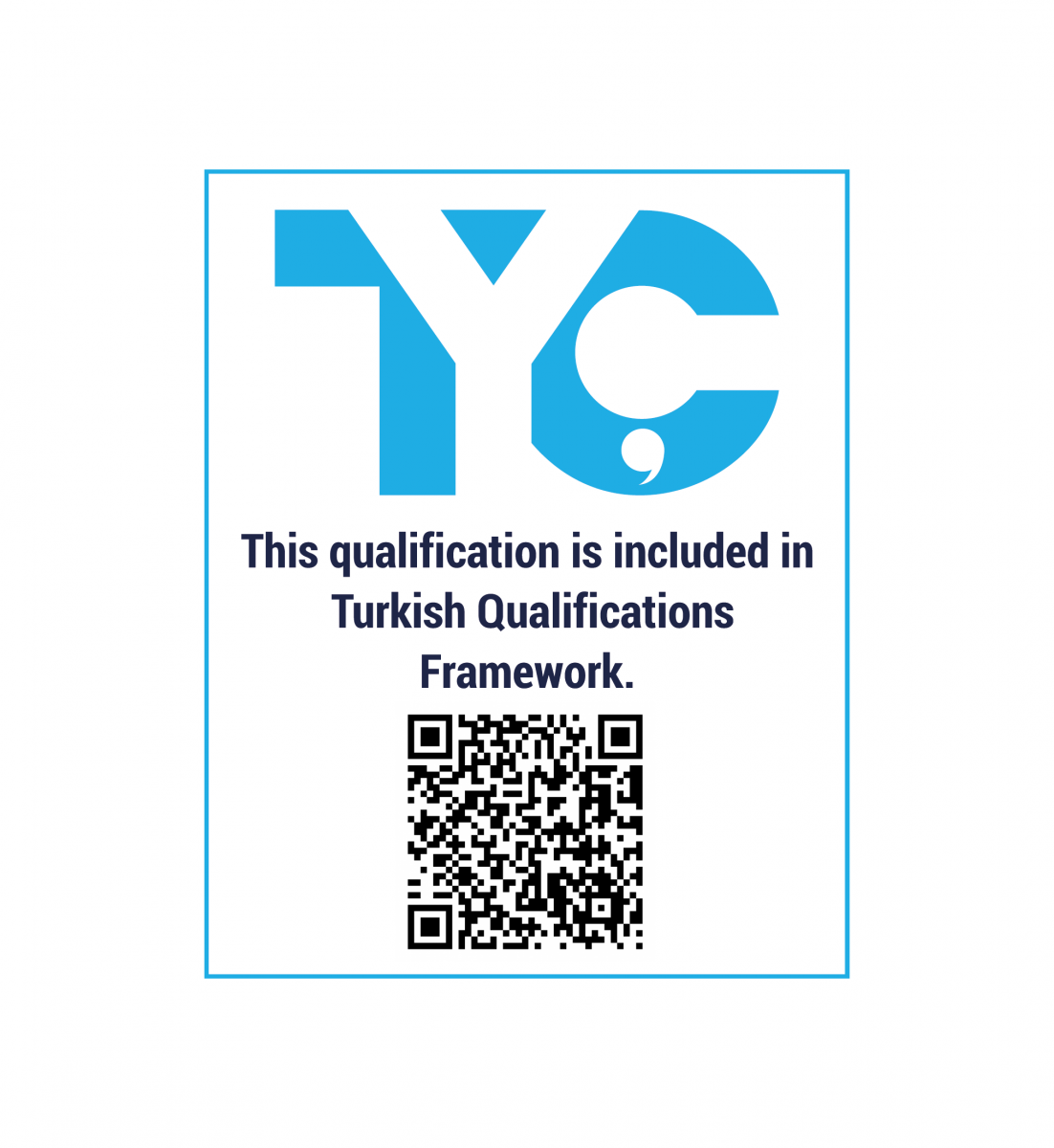
Yeditepe University Bachelor's Degree in Physics (English) qualification was included in the Turkish Qualifications Framework on 09.05.2024.
The Physics undergraduate program is designed to provide students with strong theoretical and applied physics knowledge to excel in academic life. According to the entrance exam score, we are ranked 3rd among foundation universities and 7th among all Physics Programs in Turkey. Our program, accredited by FEDEK and conducted in English, includes courses that meet the fundamental criteria of the field of Physics. It offers an interdisciplinary feature by combining elective/compulsory courses in areas such as computerized data analysis, software, health physics, electronics, material science, chemistry, nuclear physics, metrology, nanophysics, and astrophysics. All courses are conducted in English, allowing you to keep up with developments in physics worldwide easily.
Furthermore, our students can apply their knowledge in practice through mandatory internships of at least six weeks, facilitated by protocols between TUBITAK National Metrology Institute (UME) and our university or in various sectors. The Graduation Project allows students to develop and present a physics project using all their knowledge and skills, and some projects are published as posters, presentations, or articles.
During their undergraduate studies, students complete 90 physics experiments in our department laboratories. Our Metrology and Calibration Laboratory (YUKAL), accredited by TURKAK, not only enables students to obtain a Metrology and Calibration Certificate during their undergraduate education but also provides services to the Turkish industry in temperature and dimensional measurements. For students interested in continuing physics education at an academic level, we offer Physics Master's and Doctoral (with scholarships) Programs, as well as a Health Physics Master's Program.
Motivated and successful students can pursue dual major and minor programs in the Faculty of Engineering departments (Civil Eng., Industrial Eng., Electrical and Electronics Eng., Genetics and Bioengineering, Mechanical Eng., Food Eng.), as well as in the Mathematics and Information Systems and Technology departments. Moreover, through our student exchange programs with countries such as Germany, the Netherlands, Sweden, and the United States, you can broaden the framework of your education and create opportunities for post-graduation.
Physics Department not only contributes to rapidly advancing technology but also produces graduates with the ability, education, knowledge, and analytical and critical thinking skills to respond to a significant portion of the needs of the Turkish industry. We take pride in all our graduates who have been admitted to doctoral or master's programs at various national and international universities such as Yeditepe, METU, Boğaziçi, Koç, Montana (USA), Heidelberg, Munich Technical, Jena (Germany). They have received awards, worked as academicians at various universities, participated in scientific studies and projects at TUBITAK UME, national and international research and development laboratories or institutes, and contributed to science and industry as calibration laboratory managers, experts, or directors. We proudly share their success stories and contributions to science.
The physics department has the academic capacity to contribute to rapidly developing technologies, alongside the skills, education, and knowledge required to meet the needs of Turkish industry. Our graduates possess strong analytical and critical thinking skills, and many have been accepted into doctoral or master's programs at prestigious universities such as Yeditepe, METU, Boğaziçi, Koç, Montana (USA), Heidelberg, Munich Technical, LMU Munich, Hamburg, and Jena, Germany. Others have received awards, become academicians at various universities, or participated in scientific studies and projects at TÜBİTAK UME, as well as in national and international R&D laboratories or institutes. Additionally, our graduates hold responsible or managerial positions in laboratories, contributing to science and industry as radiologists, software development specialists, or experts in related fields. We proudly share their success stories and contributions to science.
You can find information about the Coe College (USA) Joint Undergraduate Program by clicking on the INTERNATIONAL JOINT LICENSE PROGRAM (COE COLLEGE USA ) page.
| Scholarship | General Quota | Accepted | Lowest Score | Highest Score | |
| Full Scholarship | 10 | 10 | 467,39583 | 493,26417 | |
| %50 Scholarship | 8 | 8 | 301,13905 | 431,77820 | |
| UOLP-Coe College | 3 | 3 | 262,33755 | 274,10644 |
2023-2024 tuition fees for Physics Department's programs within Yeditepe University Faculty of Arts and Sciences can be found here.
Yeditepe University offers various scholarship opportunities for students in the Physics Department with eligibility based on their rankings and scores in the YKS. You can find information about scholarship opportunities and criteria for both the Physics Department and other undergraduate programs here.
Students who are successful in the ranking and exam score of the Physics Department and who are entitled to study at Yeditepe University are brought to the Turkish industry with their technical expertise, knowledge and skills. Designed with an industrial perspective and having an innovative education program, the Department of Physics enables its students to work as physicists in industrial production and public laboratories. In this sense, the education provided in the department is in the fields of metrology and calibrations, health physics, materials science, laboratory accreditation, ISO standards, chemistry and energy. The Department of Physics, which brings these basic fields together, has an interdisciplinary education approach.
The Metrology and Calibration Laboratory (YUKAL), which is accredited by TURKAK, enables students to improve themselves and become equipped in the field of measurement science. In addition to training students, the laboratory also serves in various industrial processes in temperature and dimension measurements.
Graduates are also provided with the opportunity to adapt to the developing high technology, especially in order to adapt to the increasing cooperation between the laboratories of public institutions and the industrial sector. In this way, graduates of the Department of Physics have the opportunity to pursue a career in these fields as well as in the fields emerging from scientific orientation.
Graduates of Yeditepe University's Physics Department can work in the education, health, and telecommunications sectors, especially in metrology and calibration laboratories, thanks to their education and knowledge. Graduates of the Physics Department can also pursue careers in the R&D departments of various institutions and receive further training. Students who receive training during their educational journey can also teach physics at the high school level. An academic career is also among the job opportunities available
Students who receive undergraduate education in the Department of Physics are known as physicists, researchers, or scientists after graduation and can pursue careers in many different fields. Graduates who want to pursue an academic career can obtain the title of academician after continuing their education with master's and doctoral programs. However, they can also work as teachers. Graduates who want to teach physics at the high school level are required to take academic formation during their undergraduate programs. Since physics is a basic science and secondary and higher education are based on this science, graduates can teach both in public schools and private institutions.
Graduates of the Department of Physics, who can pursue careers in both public and private sectors, undertake tasks such as analyzing existing problems, conducting research using scientific methods such as experiments, and reporting research results. Graduates can work as researchers in the relevant departments of ministries and state institutions such as the Ministry of Energy and Natural Resources, the Ministry of Industry and Trade, TÜBİTAK, the Turkish Atomic Energy Authority, the State Institute of Statistics, and the Turkish Standards Institute.
Physics graduates can also train themselves in different fields. In particular, receiving education in different disciplines related to physics increases career opportunities. Graduates of the Department of Physics can pursue a master's or doctorate degree in fields such as engineering physics, quantum mechanics, thermodynamics, astronomy and theoretical physics, as well as chemistry and biology. This academic postgraduate education provides an advantage to graduates of the Department of Physics who want to become academicians and work in different sectors.
Mission
As the Yeditepe University Physics Department, we aim to contribute to the field of applied sciences and the economy of our country by training knowledgeable and experienced physicists in line with the needs of our industry. Additionally, we aim to train creative staff who can drive development in both basic and applied sciences.
Vision
Our vision is to contribute significantly to the fields of basic physics, applied physics, industrial physics, and metrology. We strive to achieve this by training physicists in accordance with the needs of industry and science, matching the standards of developed countries.
As the Department of Physics, the universities we have agreements with are shown in the table below.
|
UNIVERSITY |
COUNTRY |
CITY |
|
|
UNIVERSITY OF STUTTGART |
GERMANY |
STUTTGART |
|
|
UMEA UNIVERSITET |
SWEDEN |
UMEA |
|
|
FACHHOCHSCHULE KAISERSLAUTERN UNIVERSITY OF APPLIED SCIENCES |
GERMANY |
KAISERS |
|
|
UNIVERSITE DE STRASBOURG |
FRANCE |
STRASBOURG |
|
|
ST.MARY'S UNIVERSITY TWICKENHAM |
ENGLAND |
LONDRA |
|
The Bologna Process, implemented to harmonize with the standards of the European education system, aims to eliminate differences within the system and enhance the quality of education. Additionally, it ensures that higher education institutions recognize each other internationally and adhere to the same standards.
Yeditepe University's undergraduate programs are organized in accordance with these standards, providing students with a qualified, scientific, and transparent education. These standards are established within the Turkish Higher Education Qualifications Framework (TYYÇ), resulting in an improved quality of education and increased student participation. Furthermore, the Department of Physics' courses and the overall education system have been aligned with the principles of the Bologna Process.
Fizik Bölümü Bitirme Projelerinden Bazı Poster Sunumları:
ALİ BERKER HEPVİDİNLİ
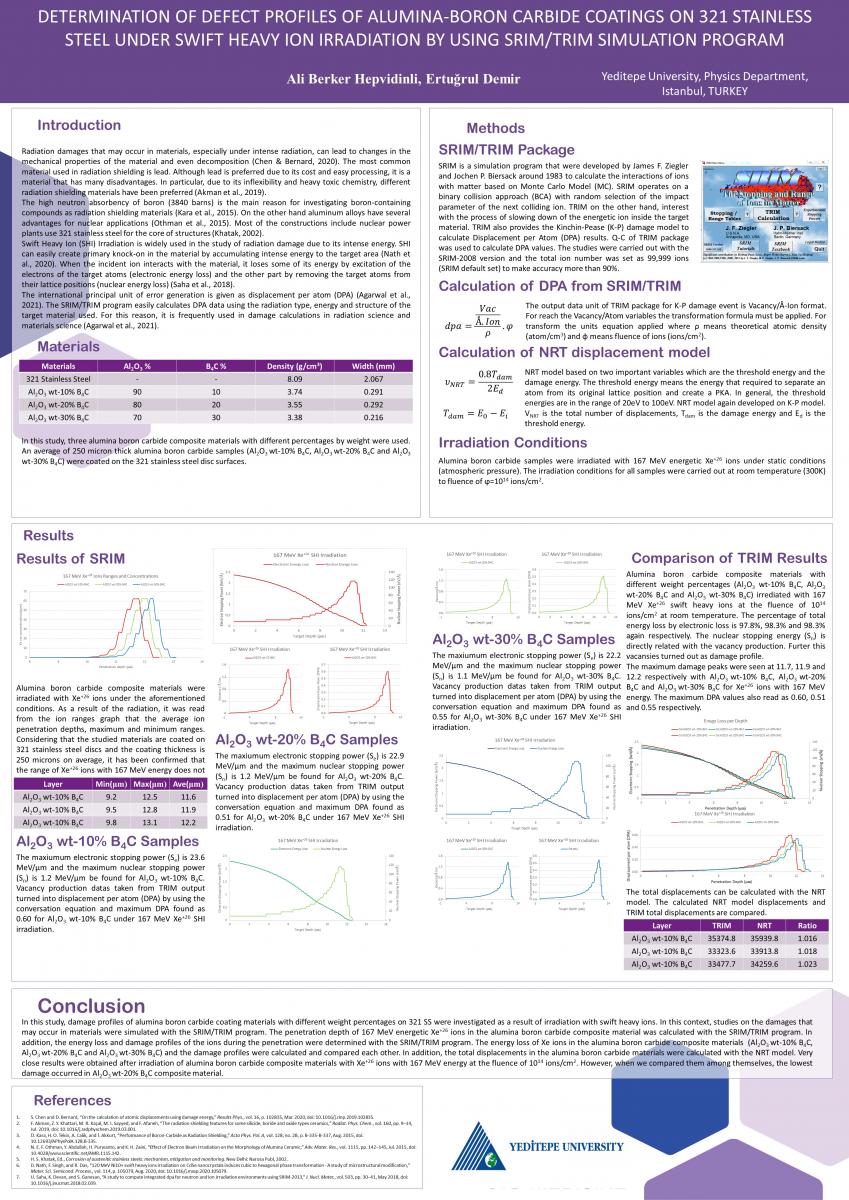
ATA ÖZMAT
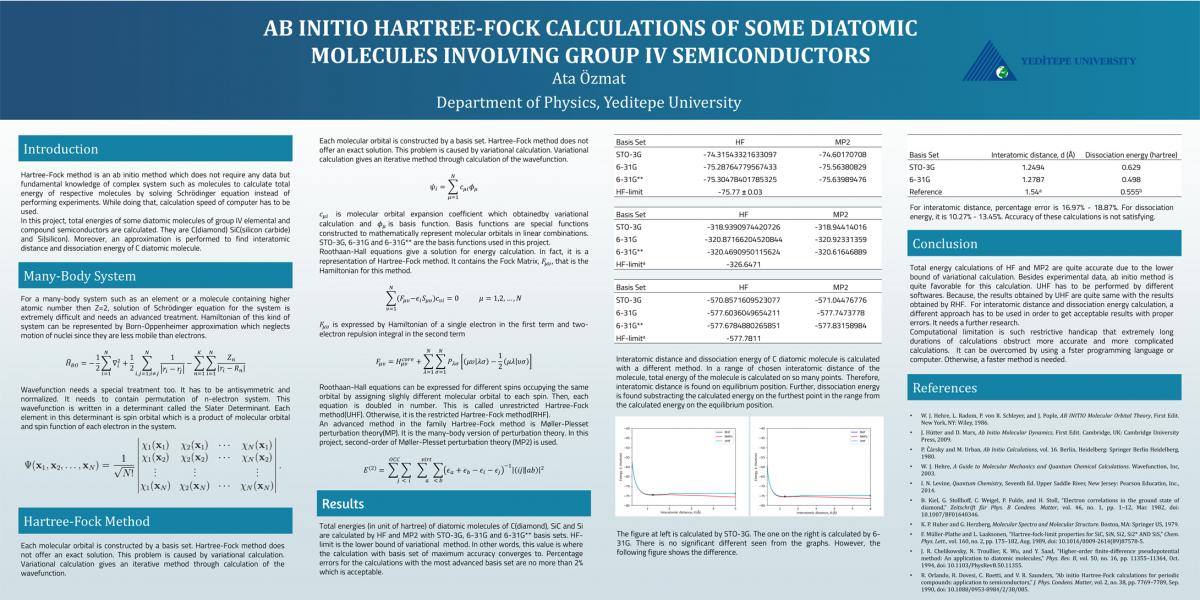


ECE GÜNGÖR
"ELIMINATION OF THE EXTERNAL MAGNETIC FIELD EFFECT BY DOUBLE COIL SYSTEM IN THE UME KIBBLE BALANCE EXPERIMENT"
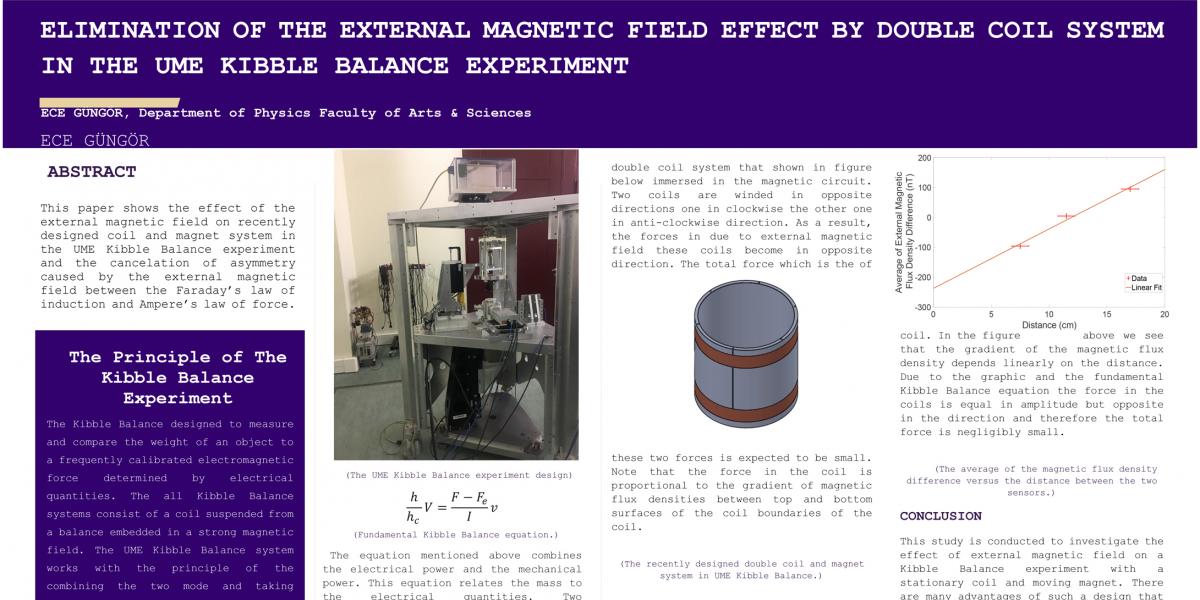

BERİL ÖZKUR:
Determination of Mass Attenuation Coefficients of Some Tungsten-Based Composite Samples Using a Monte Carlo Simulation Code

ESRA SEVER

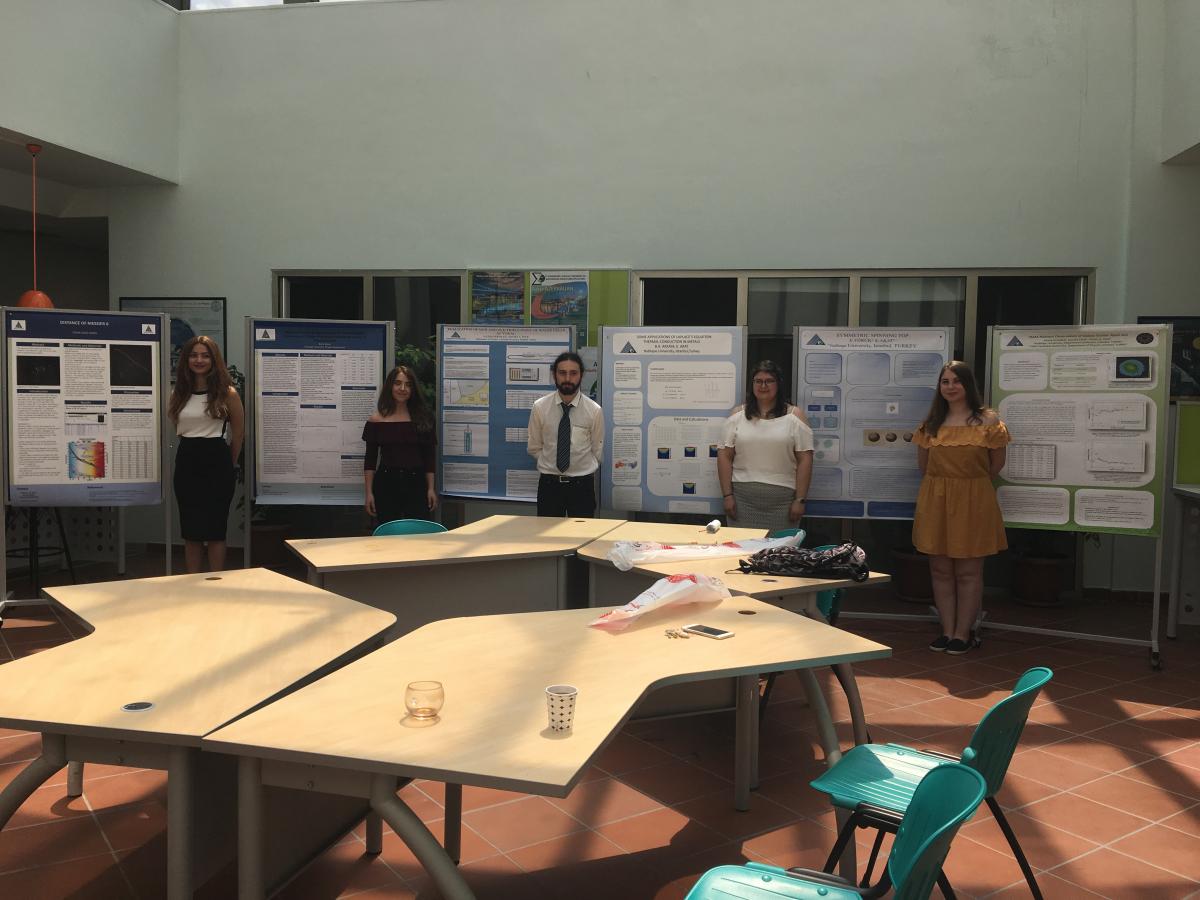
Internship Objective:
The aim of internship studies is to provide students with experience and skills related to the realization of the theoretical and practical knowledge they have acquired during the education process. Through internships, it is aimed for students to get to know the professional fields, to comprehend the relations with other professional groups, to learn the legal and administrative dimension of the subject, to gain design and application practice, to provide knowledge and accumulation for the design and application process of the professional field at the graduation stage and to gain experience on the subjects they want to specialize in.
Places where our students did their internships according to the last 2 years
| Merve Aytaç | Humboldt Universitat Zu Berlin |
| Ali Mert Turaçlar | Humboldt Universitat Zu Berlin |
| Narmin Rahimova | The Deutsches Elektronen- Synchrotnon, DESY |
| Sabri Vatansever | Tübitak Bigem |
| Ece Güngör | Tübitak Ume |
| Ata Özmat | Tübitak Ume |
Please click on the link for the places where Physics Department students do their internship
Course Content:
The student must do an internship for at least 6 weeks.
You must register for PHYS310 Internship course (end of 3rd year, summer semester) which appears in the 6th semester of our program.
At least 15 days before you start your internship, you must take and fill out the forms related to insurance from our Department Secretariat and you must write an informative petition to the Department Head about the place and subject of your internship and get approval.
Your internship work must be of a quality that will give you experience and skills related to the realization of the theoretical and practical knowledge you have acquired during the education process.
You should obtain a sample internship notebook format from our department web page (or from the Department Secretariat) and transfer your work to your internship notebook on a daily basis and have your manager at the place where you do your internship approve what you write separately for each day with a signature.
Your internship applications and internship notebooks are approved by our Department Internship Commission, internships that are not done according to the rules may not be accepted, in this case your PHYS310 course will fail and your graduation may be delayed. We kindly ask you to take the necessary care.
Internship Documents
The following are the documents required during the internship and the management of internship affairs, and samples of these forms are announced on the Department Internship board each semester
The student will fill out the Internship Summary form and submit it to the secretariat.
Student Identity Information SSI Commitment, Internship Application and Internship Application Form showing that the institution where the internship will be done accepts the student.
“Internship Approval Form” showing that the institution where the internship will be done accepts the student
Page samples of the “Internship Notebook”, which will be filled in by the student and approved by the workplace, including the breakdown of the work done and the department / program requirements specified in the internship guide
Work to be done during the internship
During the internship, the Internship Notebook must be filled in accordance with the following rules;
a) The first page of the internship notebook shows the general program of the work to be done according to the weeks. This page must be approved by the relevant unit responsible and the manager responsible for the internship affairs of the enterprise.
b) The pages of the notebook are filled in every day as a breakdown of the work done during the days and approved by the responsible manager who checks the work at the end of the week.
c) The number of pages of the internship notebook cannot be less than the number of days of the internship.
d) The internship notebook can be written in English or Turkish (with the assumption that the internship authorities may not speak English).
Work to be done at the end of the internship
a) The student who has completed the internship submits the completed internship notebook and the envelope that the company official has filled in and closed confidentially and given to the student to the commission.
b) The content of the notebook should reflect the student's work. The pictures in the internship notebook must be drawn in accordance with the technical drawing rules. Notebook content should reflect the knowledge and skills gained by the student. The student must indicate in the notebook the information he / she has acquired during the period of practical practical skills with the education he / she has received.
c) The Internship Student Evaluation Form must be completed and approved and submitted in a sealed envelope bearing the stamp of the workplace.

